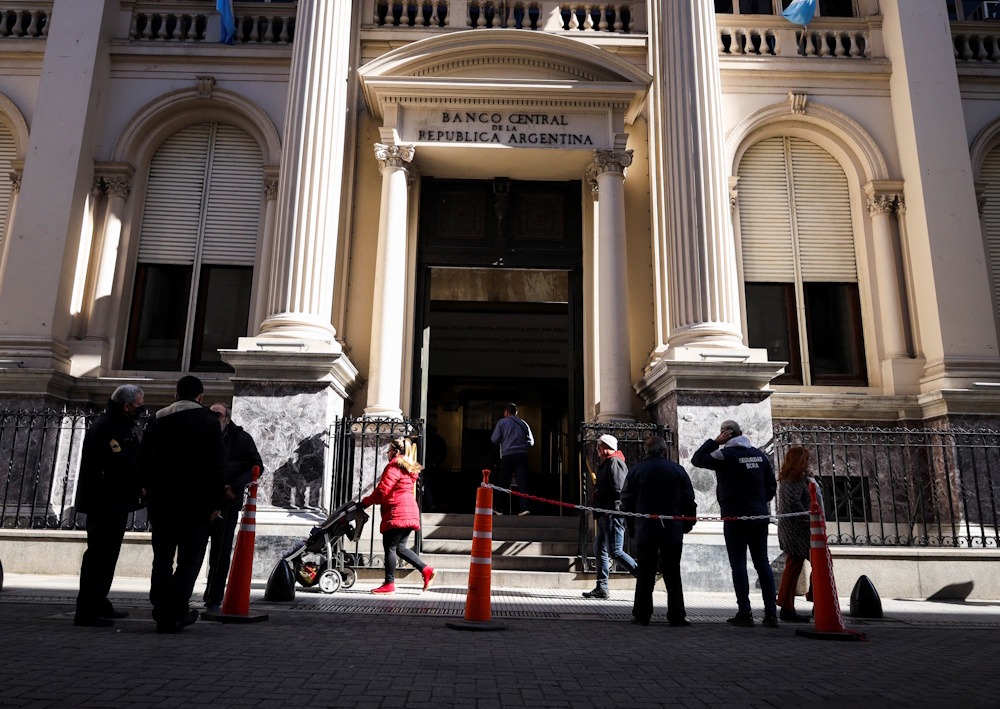Despite a chorus of calls from investors, President Javier Milei and his advisers exhibit caution regarding the swift accumulation of Argentina’s international reserves, the decision to allow the peso to float, and the relaxation of currency controls. The government’s decisive triumph in the recent mid-term elections has provided Milei with a significant opportunity to implement a new foreign-exchange framework, as noted by Argentine investors. Such measures may encompass reserve acquisitions, increased flexibility, and a depreciated exchange rate to assist in balancing Argentina’s external accounts. However, Economy Minister Luis Caputo, Central Bank Governor Santiago Bausili, and others are opposing the alterations following the government’s intervention in the peso prior to the vote. The country’s illiquid foreign exchange market and fluctuating money demand are significant factors contributing to this reluctance, alongside concerns regarding a potential resurgence of inflation. “I’m not going to rush out and buy dollars like a madman and trigger a jump in the exchange rate,” Milei stated in an interview. “As the economy expands, we will buy dollars.” However, we will monitor the inflation rate closely on a daily basis.
Investors contend that a rigorously managed peso constrains economic growth, which had experienced a downturn prior to the midterm elections, but has recently begun to recover momentum. Risks are perceived by economists and analysts as arising from a robust peso, particularly in the context of insufficient Central Bank reserves. “There’s an exchange-rate level we shouldn’t cross – and we’re quite close to it,” stated Alberto Ades. “If you observe individuals traveling to Miami and returning with suitcases filled with goods, and construction – historically the driving force behind post-devaluation recoveries in Argentina – remains stagnant, that indicates a misalignment in the exchange rate,” he noted. The International Monetary Fund has expressed a desire for the government to take measures to acquire dollars. “We have stressed the need to accelerate reserve accumulation efforts to help better manage volatility and to further strengthen market confidence,” stated Julie Kozack. The Central Bank’s net foreign reserves, calculated as total reserves minus debt liabilities, were recorded at negative US$12.4 billion on November 7. This positions it approximately US$9 billion below its IMF target for the year’s conclusion, as per assessments by local brokerage Max Capital. The government is confronted with a US$4.5-billion maturity on its global bonds in January, which it may address through private financing, particularly in light of the decline in Argentina’s country risk subsequent to the October elections, among other alternatives. Since that time, there has been an increase in dollar inflows as firms have aimed to access external financing.
Caputo and Bausili have articulated several justifications for the peso’s lack of readiness for liberation. One of them stated: “We cannot let the currency float when our political alternative continues to be Communism,” the minister remarked last week. Milei’s party faced a notable setback in the regional elections held in Buenos Aires Province in September, culminating in a victory for the local Peronist movement, which subsequently undermined the government’s position ahead of the midterm vote. Concerns regarding an oversupply of pesos are significantly influencing the situation. “Today, the government refrains from purchasing dollars due to an oversupply of pesos, with the objective of easing capital controls. If you lift the controls now, you could trigger a run against the peso and stoke inflation,” stated Ramiro Castiñeira. To mitigate that, an increase in peso demand is necessary, which would diminish the money overhang or excess savings, he stated. The current overhang is approximately 1.5 percent of gross domestic product, a significant decrease from roughly 10 percent in November 2023, prior to Milei’s ascension to power. Market participants speculate that the government may soon shift its strategy and begin purchasing dollar reserves, as there is typically an increased demand for pesos among Argentines during the holiday season. Indeed, the Treasury’s dollar deposits at the Central Bank increased by US$117 million last week, as indicated by figures released on the institution’s website – highlighting the nascent yet still gradual rate of reserve accumulation.
“December typically brings higher money demand for seasonal reasons,” noted Daniel Chodos, suggesting that this could prompt the government to increase reserves. Additional elements, including the resolution of agricultural export activities or the adjustment of positions subsequent to international bond transactions, will also influence the situation, according to Fabio Saraniti. Authorities assert that it will occur, albeit under their conditions. “We are going to accumulate reserves – and more than anyone might be thinking,” Caputo stated last Thursday, noting that purchases will align with the increasing demand for pesos. “Reserve accumulation will be a consequence of the economic programme, not its motor. The objective cannot be the accumulation of reserves at any cost if it jeopardizes economic stability,” Bausili stated Wednesday. Nonetheless, the government is constrained by time, remarked Juan Manuel Pazos, an economist at local brokerage One618. The administration’s adherence to the existing framework suggests that “the ghost of the 2027 election is bound to weigh on policy measures, capping the government’s ability to switch lanes to a consistent regime at that time,” he stated.

